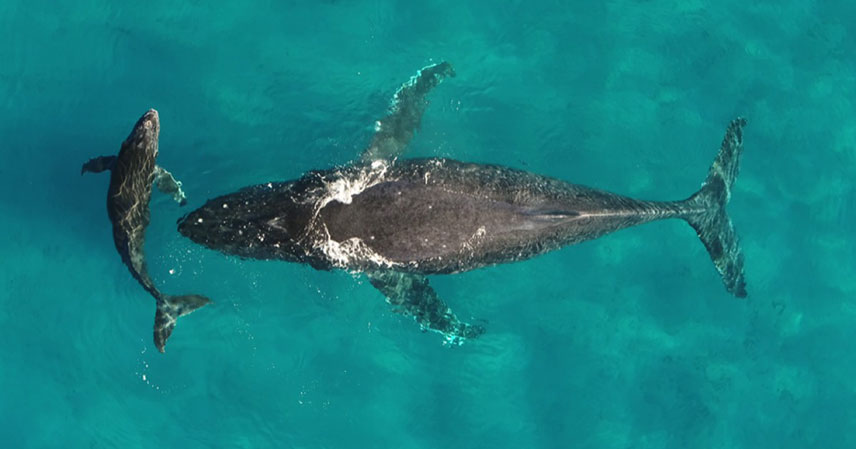For millennia, some of Earth’s largest filter-feeding whales have undertaken epic journeys. Species like humpbacks, fin whales, and blue whales travel vast distances. They move between warm tropical breeding grounds and nutrient-rich polar feeding areas each year. These migrations are a marvel of natural engineering.
These incredible journeys are not random. They are guided by deep-seated memory and subtle environmental cues. These signals tell whales when to depart and where to find sustenance. However, a silent, powerful force is now disrupting this ancient rhythm. Climate change is actively scrambling these vital signals, forcing these magnificent marine mammals to alter their course. And they are certainly not alone in this struggle.
Scrambled Signals: The Climate Change Impact on Whales 🐋
Dr. Trisha Atwood, an ecologist at Utah State University, highlights the severity of the situation. She notes that nature has finely tuned these complex journeys. Yet, climate change is now ‘scrambling these signals,’ pushing whales off their traditional paths. This disruption is a direct threat to their survival and reproductive success.
The ocean’s delicate balance is shifting rapidly. Warmer waters can alter the distribution of krill and other prey. This means whales arrive at traditional feeding grounds only to find them barren. Changes in ocean currents also play a role. These currents are like invisible highways for migratory species. When they change, the entire route becomes unpredictable.
Whales rely on precise timing for their migrations. They must reach breeding grounds when conditions are optimal for calving. They also need to arrive at feeding grounds when food is abundant. Any deviation means increased energy expenditure. It also reduces their chances of successful reproduction. This is a critical challenge for already vulnerable populations.
A Global Challenge: Beyond the Deep Blue Sea 🌍
The plight of whales is a stark indicator of a much broader problem. Earlier this year, Dr. Atwood joined over 70 scientists. They convened for a crucial workshop organized by the United Nations Convention on the Conservation of Migratory Species of Wild Animals (CMS). The focus was the global impact of climate change on migratory species.
The CMS monitors and safeguards more than 1,000 species worldwide. These species cross international borders in search of food, mates, and suitable conditions for their offspring. From birds flying thousands of miles to land mammals traversing continents, migration is a fundamental part of their life cycle. Climate change threatens every single one of these journeys.
This global gathering underscored the interconnectedness of ecosystems. It highlighted the urgent need for international cooperation. Protecting migratory species requires a coordinated effort. Their habitats span multiple countries and oceans. Therefore, their conservation demands a united global response. This is not just an environmental issue; it’s a global responsibility.
The Ecological Ripple Effect: Consequences for Our Planet 🌊
The disruption of whale migrations has far-reaching ecological consequences. Whales are not just consumers; they are also ecosystem engineers. Their deep-diving and surface-feeding habits help to mix ocean waters. This process, known as the ‘whale pump,’ brings nutrients from the deep to the surface. It fertilizes phytoplankton, the base of the marine food web.
When whales deviate from their usual routes, this vital nutrient cycling is affected. Fewer whales in certain areas could lead to less nutrient distribution. This could impact ocean productivity. It might also affect the health of entire marine ecosystems. The interconnectedness means that problems for whales become problems for everything else.
Furthermore, consistent disruption can lead to population declines. If whales cannot find sufficient food, they may not have enough energy to breed. This reduces the number of new calves. Over time, this could lead to a significant decrease in whale populations. Such a decline would have profound and potentially irreversible effects on ocean biodiversity and health.
Key Insights: Navigating a Changing World 💡
- Ancient migratory patterns are under severe threat due to the impacts of climate change, affecting foundational species like filter-feeding whales.
- The disruption extends beyond marine mammals, impacting over 1,000 migratory species globally, from birds to land animals.
- Climate change ‘scrambles’ environmental cues, forcing species to veer off course, leading to increased energy expenditure and reduced reproductive success.
- The ecological consequences are vast, including altered nutrient cycling and potential cascading effects throughout entire ecosystems.
- International collaboration, as exemplified by the UN CMS workshop, is crucial for developing effective conservation strategies for these border-crossing species.
Source: Whale and dolphin migrations are being disrupted by climate change



